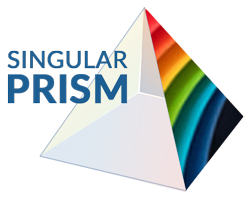GLASS RAIN—the poetry by Margaret Roxby
The poem “POET’S LAMENT” was written to share with her poet friends.
KALEIDOSCOPE—a series by Kathleen Roxby
“POETS AND MANGLED WORDS, A Case for Absolution” by Kathleen Roxby. The author, like many other young readers, questioned the “misspelled” words in the poems her mother read to her or those she read at school. In college many of the poets who abuse the language in this way were strongly disparaged. Their poetry had been shuffled into the file labeled “old-fashioned”, “stuffy” or just “bad”. But, some of those same poems were favorites of the author. She has always felt a responsibility to defend them.
THROUGH THE LOOKING GLASS—the poetry of Kathleen Roxby
“DENIAL FAVORS ANAPEST” was written in response to a poetry class assignment.

